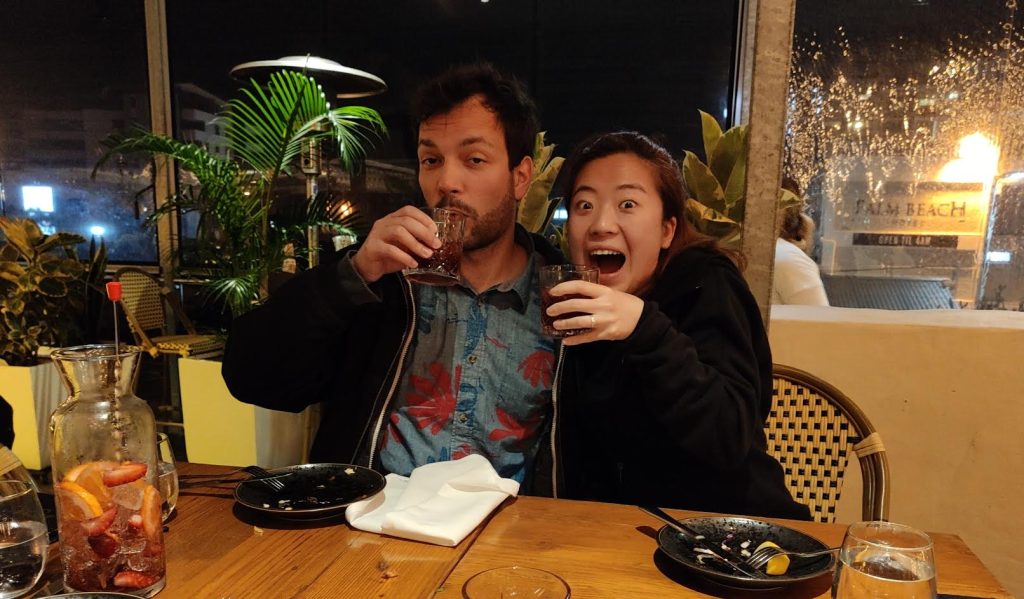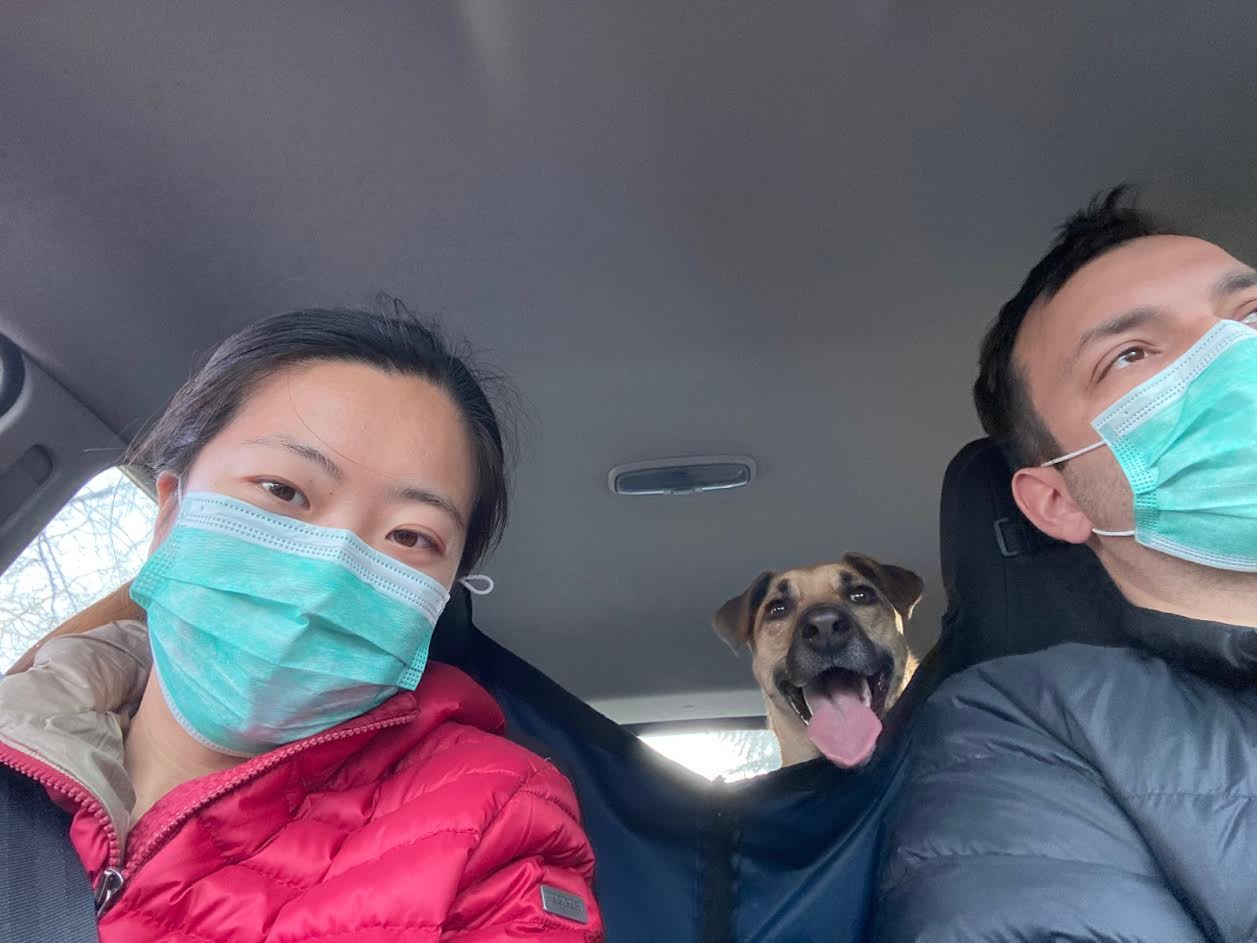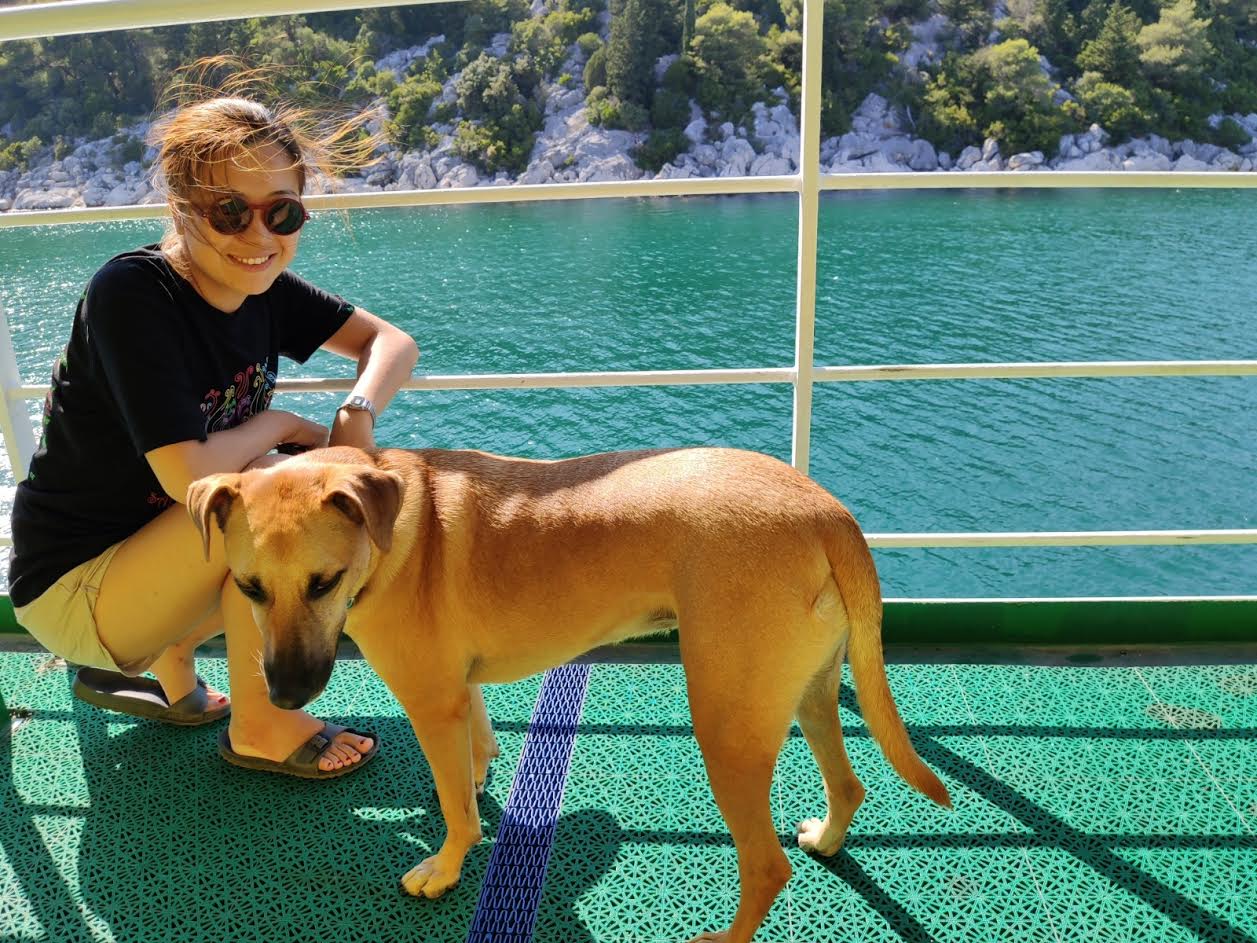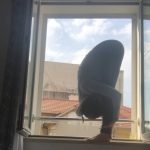April 4, 2020 – Do foreigners in Croatia feel more or less safe sitting out COVID-19 here than in their home country, and what are their experiences? A new series on TCN, with Sisi Peng from China in Zagreb as our 23rd contributor.
Oxford University recently published some research on government responses to coronavirus which showed that Croatia currently has the strictest measures in the world. While inconvenient, this is a good thing in terms of reducing the spread of the virus, and I am certainly not alone in my admiration of the official Croatian handling of this crisis in recent weeks, both in terms of action and communication.
But what do other expats here think? And how does it compare with the response in their home country? Would they rather sit this one out here or there? In the first of a new series on TCN, we will be featuring expats from all over the world to see what their views are on life in corona Croatia rather than back home. So far we have heard from expats in Croatia from Romania, USA, Ireland, UK, Mexico, Argentina, Spain, Singapore, Holland, Canada, India, Hong Kong, Venezuela, Latvia and Germany. Next up, Sisi Peng from China in Zagreb with a quite incredible article.
If you would like to contribute to this series, full details are below. Now, over to Sisi.
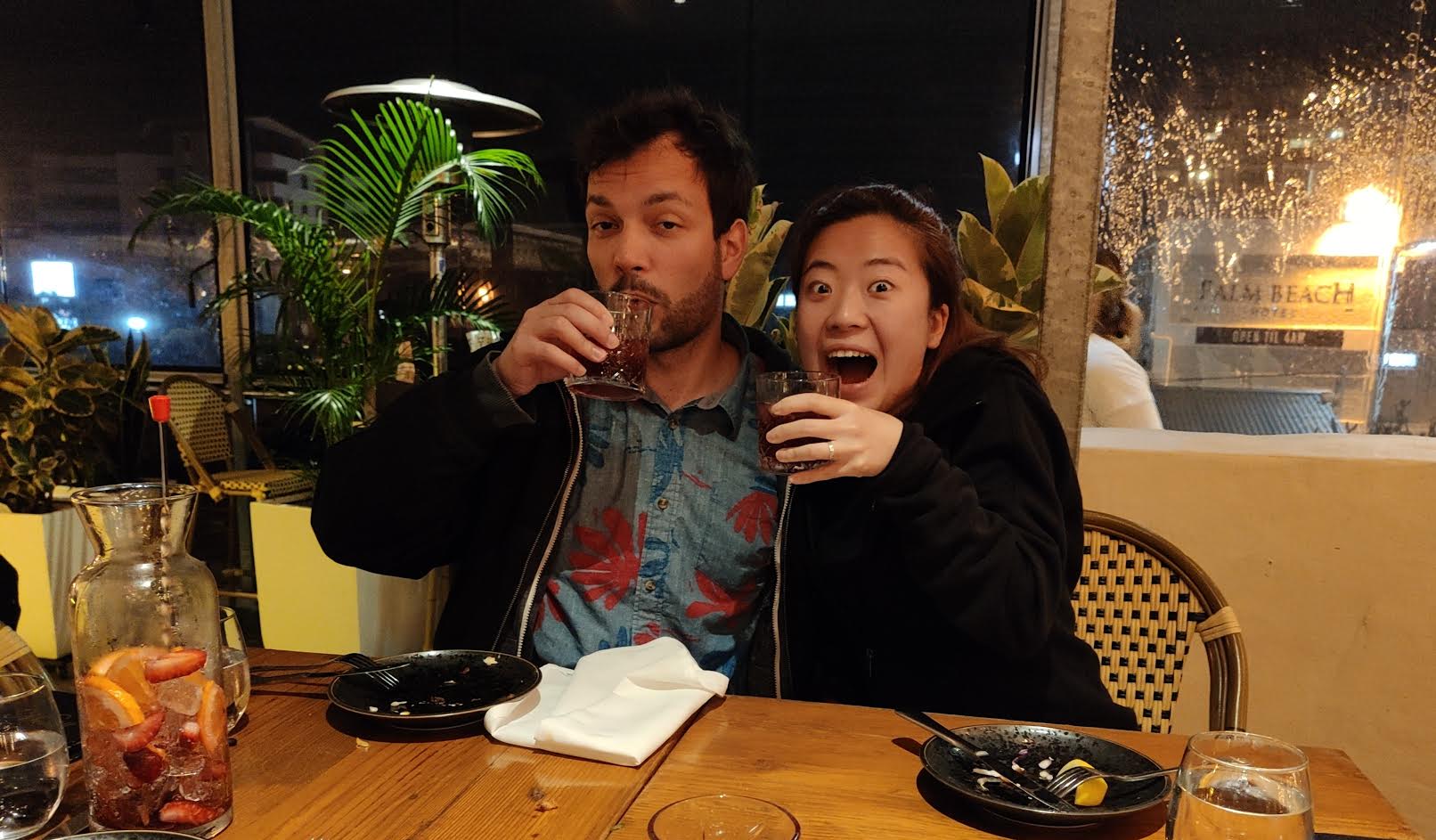
Firstly, how are you? Are you alone/with someone? Tell us a little about your situation and sanity levels.
I am Sisi from China. My Croatian husband and I are doing fine. We have started to stay at home since mid-March. But he has to work half of the day at home and half of the day in the office, which I am not very happy with. We have a two-year-old dog, she keeps me going out twice a day for some fresh air, we’re very thankful for that.
What do you think about the economic measures the government is taking, are they helping your business?
My profession is teaching Chinese language to foreign speakers, but I also cooperate with Croatian hotels, travel and lifestyle brands for creative writing and translation specialised for the Chinese market and promote them in the modern social media framework.
I began freelancing in summer last year. The situation for me in Croatia before the coronavirus was not too bad. For example, some resorts at the seaside had planned to attract more Chinese customers during the 2020 Chinese New Year and during summer, and I was also occupied by several projects at hand. Unfortunately and sadly, now I can hardly imagine doing any of the above.
When did you realise that corona was going to be a big issue?
As a Chinese national living overseas, I have mixed feelings regarding this whole issue. I will write this article in a chronological order from my own perspective.
It started from the beginning of December 2019 in Wuhan, China. The news from China firstly said that it was not a serious virus, that it was controllable and preventable, and that the government asked the people in Wuhan to stay calm. And of course, I did not think too much about it.
January 2020. Life was normal here in Zagreb. The outbreak had already happened in Wuhan and the number of infected people skyrocketed by the end of the month, but more people with symptoms were not even able to get tested. The hospitals were already overloaded, and there was shortage of medical supplies, doctors and nurses worked around the clock and some of them got infected. People reached out for help on Weibo (the Chinese version of Twitter), because normal channels did not really function. We did not know how many people exactly were infected or dead.
January 23. An abrupt official lockdown was announced in Wuhan. An estimated five million people managed to flee from the city before the lockdown, said the Wuhan mayor, another nine million stayed.
January 25. This is the first day of our national holiday. On the same day, a bus with 29 Chinese tourists,18 of whom were from Wuhan, entered Croatia from Italy where they were previously travelling. They were going to Dubrovnik and then to Bosnia. ”Here they come, I hope they are all healthy,” I was thinking when I saw the news.
January 26. Four Croatian students stuck in Wuhan had an interview on Croatian TV.
I saw that many Chinese people living abroad had started to buy masks in bulk and send them back to families and to hospitals, they were trying to help. Scandals about the Hubei Red Cross appeared and disappeared on Weibo, some local government official sent their drivers to bluntly take away the donated masks in big carton boxes from the distribution centre, while the doctors had to come in person with special approval and wait at the gate to get medical supplies, some doctors came back to the hospital with empty hands.
January 30. Out of worry, my friend and I showed up at a pharmacy and the salesperson said to her colleague that these Chinese girls had surely come to buy masks… We came too late, there were no more N95 masks. But a normal surgical mask costs 2 kuna each. We did not buy many, who would think that this virus would hit Europe fast and hard?
Soon enough, a few cases were found in Europe. I became scared, but my husband and other friends were just relaxed. They tried to calm me down by comparing it with the death toll of Influenza and other flus. “You are overreacting, baby” my husband said. We still went to bars and restaurants.
February 2020. Life still seemed normal in Zagreb but things were changing. I signed up for a three-week Croatian language course at the faculty, but I found it difficult to keep up with, every hour I was overwhelmed by bad news from China, I simply could not focus on the lecture.
February 1. The four Croatian students living in Wuhan were evacuated from the city and quarantined in France for 14 days. Official lockdowns, from city to city, started in China. A very high-level risk warning across the whole country. My family back home said they were doing fine. A new policy was implemented, that only one person from each family was allowed to go out to buy food and necessities every day under an agreed schedule. My friends in Shanghai said they missed eating out. Every single person in China had to wear a mask when going out, no excuses.
February 7. Chinese doctor Li Wenliang was confirmed dead from the coronavirus. He was arrested as a rumour monger when he first warned his other doctor friends on a WeChat (a Chinese application, a combination of WhatsApp and Facebook) group about this mysterious virus before the outbreak. He once said there should be more than one voice in a healthy society. Many Chinese citizens around the world got infuriated on that day, they posted their anger on WeChat, Weibo, Facebook, everywhere. Their posts were deleted within seconds on Chinese platforms. I failed to send my post in the first place because it contained certain sensitive words. I cried so much that night.
I started to feel scared of going out, since people would stare at me or immediately walk away from me on the streets and on trams. One day, three young ladies shouted “Coronavirus!” at me at a tram stop. Another day, my Chinese friend said a similar situation happen to her. I stopped going to yoga and dancing class. I felt anxious.
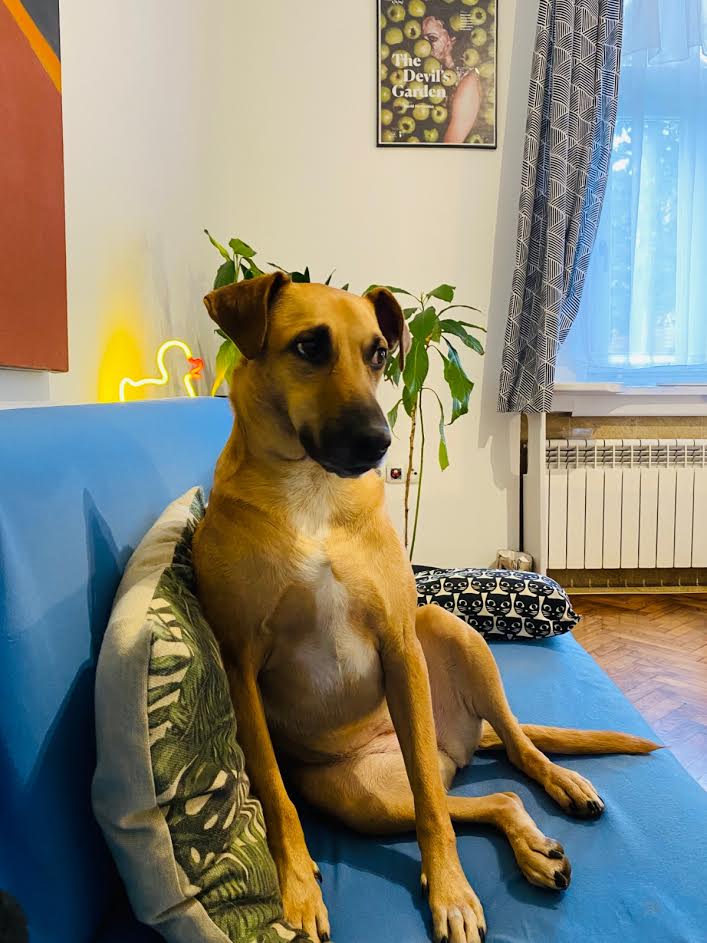
February 25. The first confirmed case in Zagreb, during the same day, I saw people stockpiling in shops. But very few people wore masks in public. I did not have the guts to put on my mask.
March 2020. The coronavirus spread fast in Italy in the beginning of this month, it became another “Wuhan” in Europe. Some world-famous celebrities also got infected. Meanwhile, the number of cases in China slowed down. Many countries have closed their borders during this month. Things were getting worse outside of China.
I signed up for another semester of the Croatian language course. During the first week of school, one Chinese student burst out crying in class when the teacher asked about her recent life in Croatia. She and her husband got seriously abused and harassed at the Carnival Parade in Rijeka, and an old guy in a super market in Zagreb shouted in her face, asking her to get out of his country when he saw her wearing a mask. Xenophobia, racism and violence against Chinese people were on the rise in many countries because of this virus.
I had serious and long talks with my husband about this situation and my worries. I tried to tell him that this was not just another flu. I told him that what was happening in China in the last two months was happening right here and right now. It would be for the best if he could start to work from home and his band should cancel their upcoming concerts (His punk band Mašinko: https://masinko.bandcamp.com/). But again, he was not very convinced and soon left for the rehearsal. “Why are so many European people being ignorant? Look at what is happening now in Italy! And we are their neighbour, are you feeling safe at all?” I tried to control my tone of voice, but I said it desperately.
I started to walk to the faculty and avoid using trams. I went to pharmacies to buy medical alcohol, sanitisers were sold out.
March 10. A student in my class started to cough very hard, the teacher had to stop talking to ask if she was ok. The class of 18 people kept silent as if nothing had happened, and we finished the class on time.
March 11. The coronavirus outbreak was finally confirmed as a world pandemic by the WHO. That morning, the same student showed up again in class with a note from a doctor. She still coughed and sneezed. She claimed that she did not have the coronavirus and that the doctor had proved it. No one said anything, I got surprised and offered a mask to her, but she refused. She said it was not helpful. I sent her a message after school, I told her that she should stay at home and rest first regardless the type of virus she was carrying, adding that this would be the best solution for all of us. She said that she felt a little discriminated by me and reminded me that the coronavirus had come from China.
March 12. I stopped going to the faculty and chose to stay at home. On that day, the faculty issued a formal notice, and asked students who came to Croatia from other countries during the last 14 days to start self-isolation for two weeks. My husband’s concerts were officially cancelled, I took a deep breath.
Still March 12. A Chinese Foreign Ministry spokesperson has suggested that the U.S military could have brought the coronavirus to China, denying it originated in Wuhan — I was speechless when I saw this news.
March 16. Online classes were launched on Zoom Video. On the first day, we were using it clumsily. Kindergartens, schools and universities all got closed for 14 days. My husband still went to work as usual. I took my dog out for a walk in a nearby forest, I saw kids running outside, more people came out in sports clothes in the early afternoon. “What’s the whole point of closing then schools and workplaces, then?” I couldn’t stop thinking.
March 20. My husband and I started a new family tradition. Every day when dinner is ready and out on the table, we first pour a shot of rakija for each of us, together saying “Da smo mi živi i zdravi!” out loud, meaning “let us be alive and healthy”!
March 22. A strong earthquake hit Zagreb early in the morning, it was also the first day of the nationwide lockdown in Croatia. We hurried out onto the street and saw other neighbours. We did not wear masks, I went out even without my passport. Everyone looked startled. I have never felt so scared in my life like I did on that day.
March 26. China announced a temporary entry ban for most foreign nationals in an effort to curb the number of imported cases of the coronavirus. My friend back in Shanghai told me that people were getting laid off, but that she still works from home.
March 29. China launched the “health code” service, it runs on WeChat and Alipay which are used by the majority of Chinese people. It gives colour-coded designations to users based on their health status and travel history. A QR code can be scanned by the authorities. A green code means healthy, yellow shows that the holder should be in home isolation. Red shows that the user is a confirmed coronavirus patient and should be in quarantine.
“Will we also adopt this QR code system to have us tested when we go outside to public places in the future?”
What is your impression of the way Croatia is dealing with the crisis? How safe do you feel?
Objectively speaking, Croatia is doing pretty well but at the cost of a potential economic recession. I would feel safer if my husband worked from home completely. But now he is the only one in the office, so it is not so bad. Also, we are ordering food by phone instead of going out to the shops.
I would probably feel safe as well if I was in Shanghai. But it would definitely not be as comfortable and flexible as it is in Croatia. I would probably find it much more difficult to walk my dog in China than in Croatia.
Now compare that to your home country and how they are handling it. What is Croatia doing better/worse?
I am displeased about my country’s stalling when there was a need to react fast in the moment it was obvious that this was a new and serious virus. They could have prevented this disaster from spreading in Wuhan and across the whole world.
But in a manner of speaking, this comparison between Croatia and China is not easy. China is the first country to deal with this virus. Wuhan city has more than 10 million people with a limited number of hospitals. China has deployed the best doctors from different cities to Wuhan to support the local hospitals during the outbreak. They launched many strict restrictions. I also remember Hong Kong hospital staff were on strike, demanding the closure of the Chinese border during that time. This, or any other kind of strike, is very unlikely to happen in China and be exposed on official news.
Other western countries would not do things in such an extreme way that China did and I think Chinese people are more cooperative with the government. They could give up their freedom of movement and stay at home for months and wear masks when the government asks them to.
Compared with Sweden’s approach to the coronavirus, though, I think Croatia is doing the right thing. But again, as a Chinese citizen who witnessed all of this, I think Croatia could have closed schools even earlier and told people to work from home.
What about official communications from the authorities, compared to your home country?
I have seen too much heartbreaking news during the outbreak in China, sometimes the news from the government channel was the opposite from what was being posted temporarily on Weibo. I had to take a snap photo of the news on my phone immediately before it was deleted. I also read news on English portals about situations in China. It was hard to pick up the truth or useful info from tonnes of fake news and propaganda. “Are they hiding the real number or bragging about the victory?” I constantly asked myself, think before you believe it. Meanwhile, I had to tell my family not to trust unofficial and fake advice on protecting themselves from the virus. It was all so exhausting for me.
While I’m in Croatia, I follow TCN portal or use Google Translate to read other Croatian news, but I feel the communication is very straightforward, open and transparent.
What’s the one thing you wish you had taken with you into self-isolation.
I wish I had a survival kit at home, because you never know when an earthquake will come during self-isolation.
One thing you have learned about yourself, and one thing you have learned about others during this crisis.
I learned that I am a lucky person but I did not really see it before. After we went through the earthquake and now lockdown, we remain mentally strong as a whole family, which is very precious.
About Sisi:
I came back to Zagreb from Shanghai in July 2019, where my husband spent about one year learning advanced Chinese language with a scholarship, meanwhile, we took this opportunity as a gap year to explore the country together.
My profession is teaching Chinese language to foreign speakers, but I also cooperate with Croatian hotels, travel and lifestyle brands for creative writing and translation specialised for the Chinese market and promote them in a modern social media framework.
Please feel free to contact me if you or your child is interested in learning Chinese online during this home quarantine period or you need anything translated. Contact: [email protected]
Thanks, Sisi, stay safe and see you on the other side.
TCN is starting a new feature series on foreign experiences of sitting out COVID-19 here in Croatia compared to their home country. If you would like to contribute, the questions are below. Please also include a para about yourself and where you are from, and a link to your website if you would like. Please also send 3-4 photos minimum to [email protected] Subject Corona Foreigner
If you would be interested to record a video version for our partners www.rplus.video please let us know in the email. Thanks and stay safe.
Foreigners Self-Isolating in Croatia: Do You Feel Safer Than in Your Home Country?
Firstly, how are you? Are you alone/with someone? Tell us a little about your situation and sanity levels.
What do you think about the economic measures the government is taking, are they helping your business? (PLEASE IGNORE IF THIS DOES NOT AFFECT YOU)
When did you realise that corona was going to be a big issue?
What is your impression of the way Croatia is dealing with the crisis? How safe do you feel?
Now compare that to your home country and how they are handling it. What is Croatia doing better/worse?
What about official communications from the authorities, compared to your home country?
What’s the one thing you wish you had taken with you into self-isolation.
One thing you have learned about yourself, and one thing you have learned about others during this crisis.
TCN has recently become a partner in Robert Tomic Zuber’s new R+ video channel, initially telling stories about corona experiences. You can see the first TCN contribution from this morning, my video from Jelsa talking about the realities of running a news portal in the corona era below. If you would like to also submit a video interview, please find Robert’s guidelines below
VIDEO RECORDING GUIDE
The video footage should be recorded so that the cell phone is turned horizontally (landscape mode).
There are several rules for television and video news:- length is not a virtue- a picture speaks more than a thousand words
In short, this would mean that your story should not last more than 90 seconds and that everything you say in the report should be shown by video (for example, if you talk about empty streets, we should see those empty streets, etc.).
How to do it with your cell phone? First, use a selfie camera to record yourself telling your story for about a minute and a half. Ideally, it would be taken in the exterior, except in situations where you are reporting on things in the interior (quarantine, hospital, self-isolation, etc.). Also, when shooting, move freely, make sure everything is not static.
After you have recorded your report, you should capture footage that will tell your story with a picture, such as an earlier example with empty streets.
One of the basic rules of TV journalism is that the story is told in the same way as a journalist with his text. Therefore, we ask you for additional effort. Because we work in a very specific situation, sometimes you may not be able to capture footage for each sentence of the report. In this case, record the details on the streets: people walking, the main features of the city where you live, inscriptions on the windows related to the virus, etc.
The same rules apply if you are shooting a story from your apartment, self-isolation, quarantine. We also need you to capture footage that describes your story.
When shooting frames to cover your reports, it is important that you change the angle of the shot (in other words, shoot that empty street from several angles). Also, when shooting a detail, count at least five seconds before removing the camera to another detail.
The material should be about 5 minutes long (90 seconds of your report + frames to cover your story).
After recording everything, send us to Zagreb, preferably via WeTransfer to [email protected]

